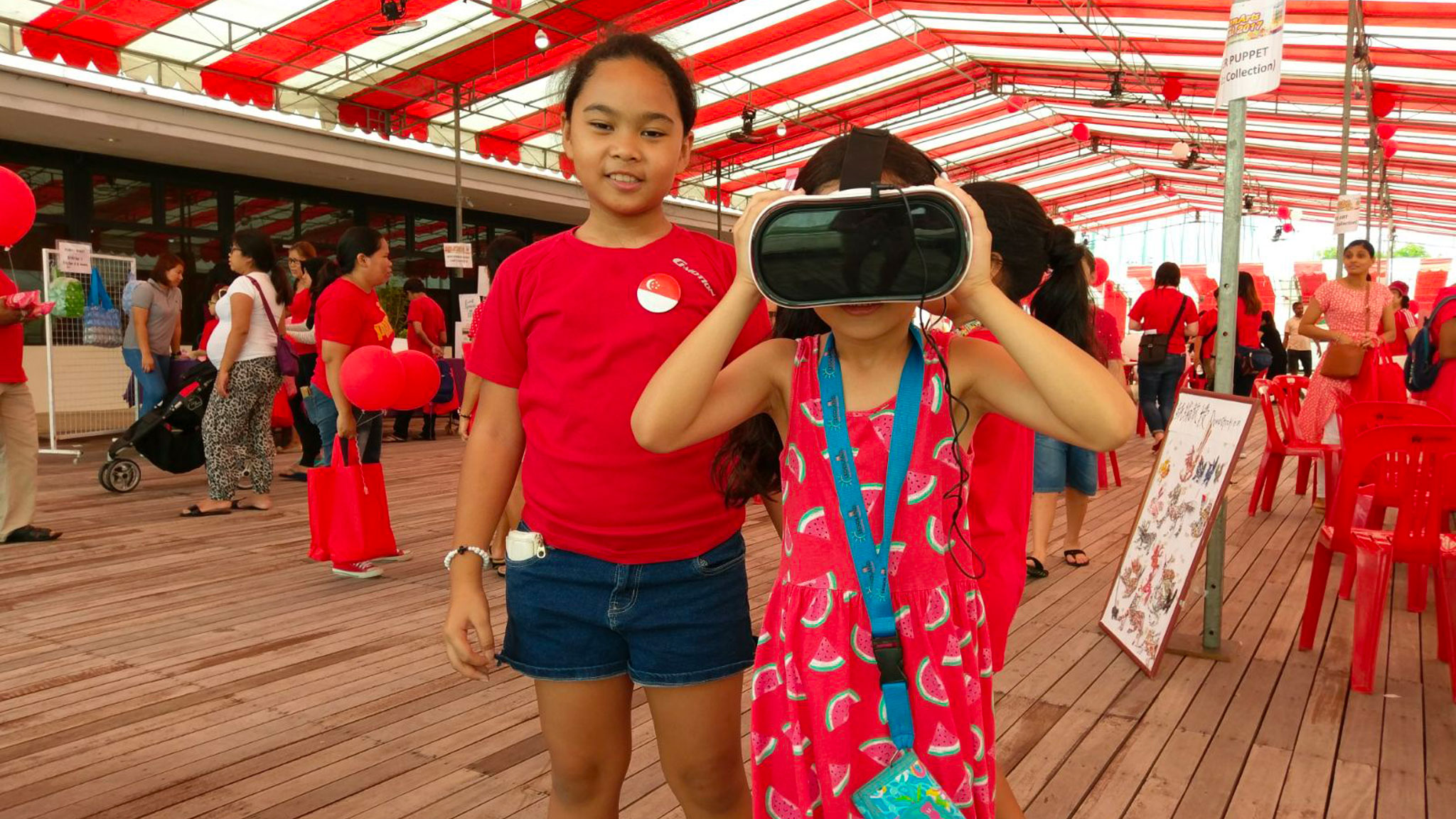A Dose of (Virtual) Reality
Tue, 01/23/2018 - 12:00
With virtual reality (VR) and augmented reality (AR) technologies blurring the seams between reality and fantasy, everyone from startups to academia and even NASA wants a slice of the action.
Today, AR/VR technology companies are fuelling investor frenzy the same way social media companies did a decade ago. Facebook acquired VR platform Oculus for US$2 billion in 2014, while Magic Leap raised US$1.5 billion to fund its head-mounted virtual retinal display. Even US space agency NASA is getting in on the action, developing AR/VR apps such NASA 3DV and Spacecraft 3D. “AR is indeed the platform of the future,” says Dr Lokesh Dhakar, CEO of Immerzen Labs, a Singapore-based startup that aims to help city planners design urban spaces with the help of 3D data.
If you look at AR applications on the iPhone right now, they’re still very basic. This is what the internet was like in the 1990s, when there were few webpages and one couldn’t do very much on it.
Making sense of noisy data
Founded by a trio of computer engineers, Immerzen Labs emerged from the first cohort of Entrepreneur First (EF) inaugural programme in Singapore.
High school classmates Dr Dhakar and his future co-founder and COO, Dr Ronak Bajaj, moved to Singapore to pursue their graduate studies, where they met Immerzen’s third co-founder and CTO, Dr Rishabh Ranjan.
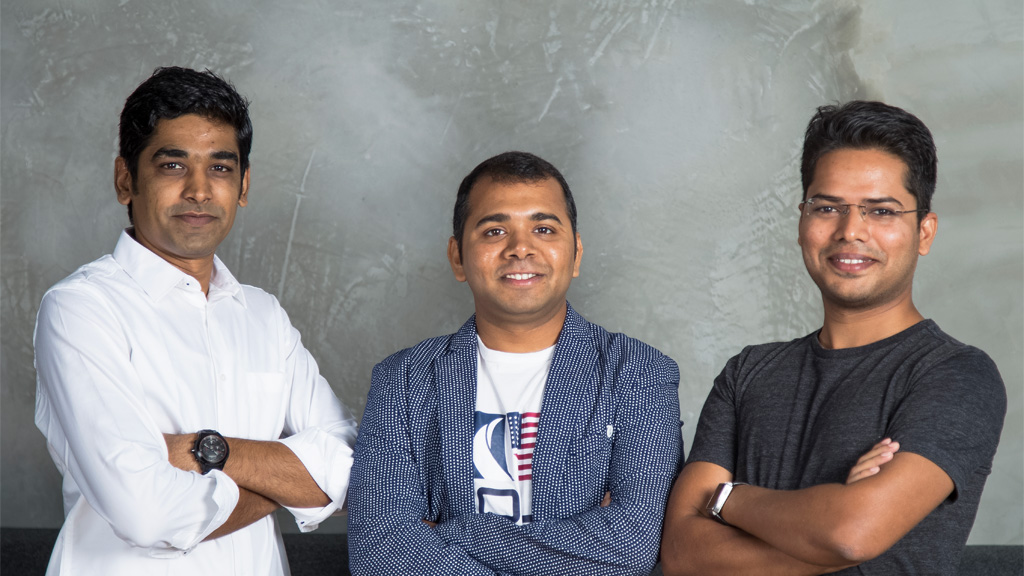
L-R: Ronak Bajaj, Rishabh Ranjan and Lokesh Dhakar
The team has city-sized ambitions—using 3D map data of Singapore, they hope to provide government agencies with city-scale information at their fingertips, augmented in the real world.
Currently, agencies work in silos; one agency has the information, which is not accessible to other agencies in a meaningful way. We are creating a common platform where all the agencies can come together and build data,” Dr Bajaj says.
Together with the Government Technology Agency of Singapore (GovTech), which is Immerzen’s first government agency client, the team is working on their first application—noise mapping.
Noise is a huge problem in Singapore,” Dr Dhakar says. “For example, if I want to build a road, how is it going to affect city life? For aircraft mapping, on what path should I fly, and at what time?
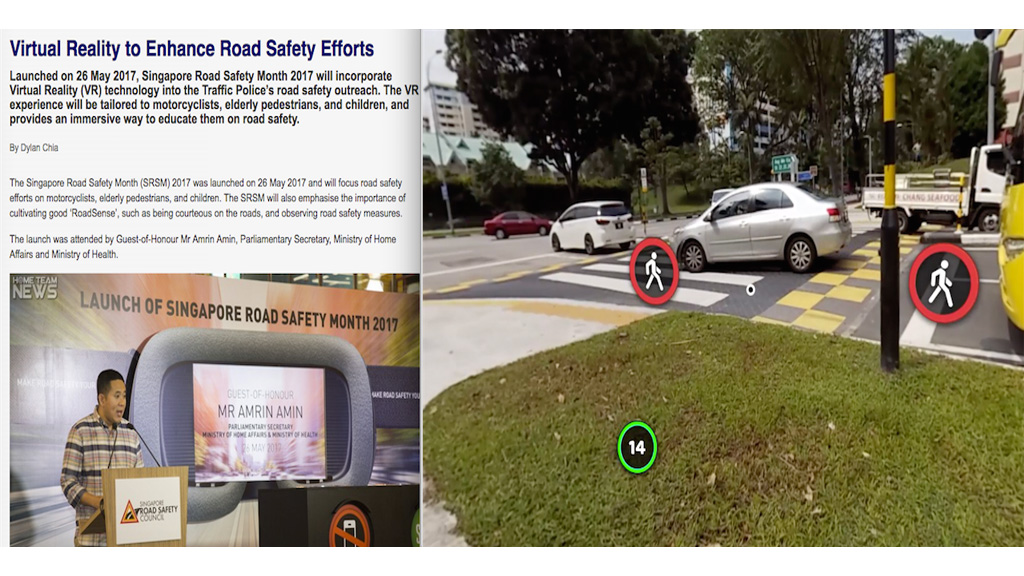
Road Safety VR pilot programme
With the 3D map of Singapore as the base, Immerzen layers on noise data collected from sensor networks planted across the city. The team then extrapolates this information to give suggestions on where to build homes, offices and public spaces.
An immersion into the future
Like Alice’s experience down the rabbit hole, AR/VR-based entertainment can be disorienting if not done correctly, notes Mr Lionel Chok, the founder and executive director of iMMERSiVELY, an AR/VR startup based in Singapore and Malaysia.
VR is applicable in many industries, ranging from real estate to education, interior design, architecture, medical and retail. But bad content is why some people avoid VR, because they say they feel nauseated after trying it. Thus, we as practitioners need to deliver VR content correctly, with the proper hardware and set-up.
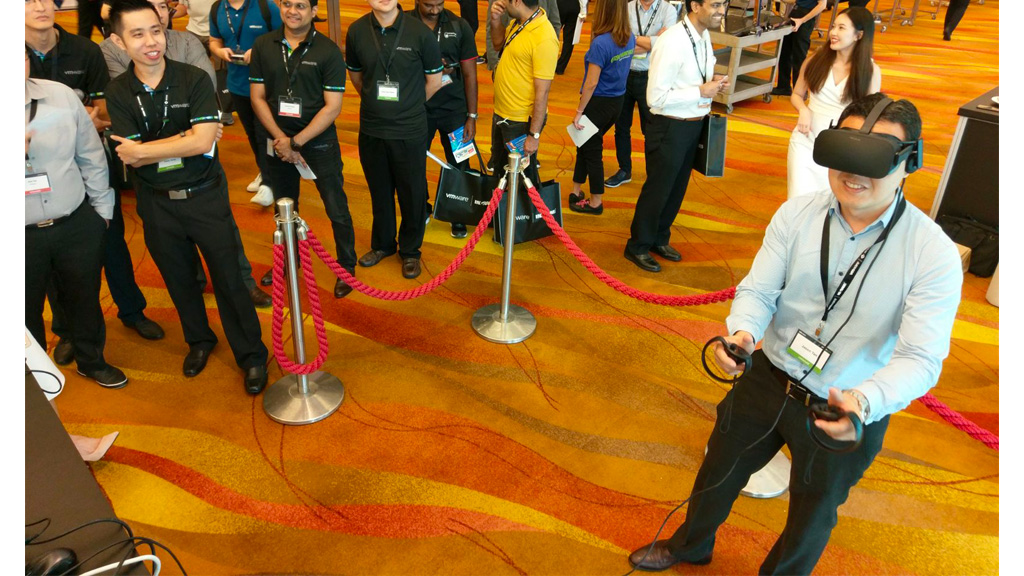
VMWare's vRForum 2017 - VR Gaming for Good Charity event
Mr Chok represents a new wave of media professionals who are eschewing traditional broadcast and publication formats for futuristic platforms such as VR. He decided to focus on visual, content-based technologies such as AR and VR after realising—while pursuing a postgraduate degree in creative technology at Middlesex University in the UK—that the coding and web development space was already saturated.
This proved prescient—by the time he graduated, tech giants like Facebook, YouTube and Google had started to embrace the technology, he recalls. “I found myself aligned with the developments of AR and VR internationally.”
Taking zero external funding, Mr Chok founded iMMERSiVELY, whose current projects include producing an original commissioned VR documentary, starting a series of tech and art classes with an education partner, and developing their own learning platform.
We have been growing our business in consulting and servicing, and our aim is to become a leading AR/VR company in Singapore,” Mr Chok shares.
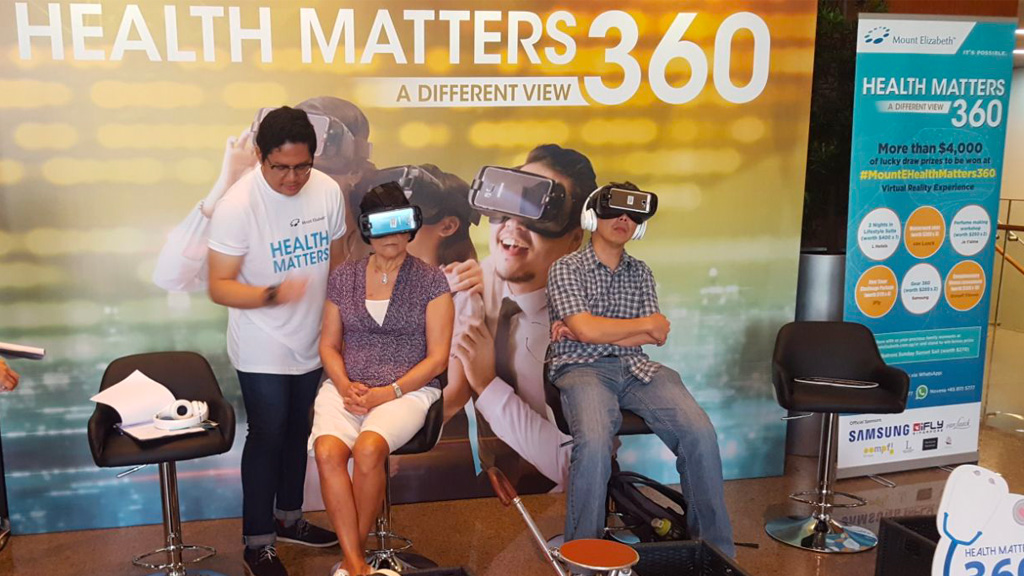
"Health Matters 360" VR campaign for Parkway Health
In conversation with… your fridge?
While demand for consumer-focused game and entertainment solutions will continue to drive the sector, the sight of employees working with AR/VR gear will become increasingly ubiquitous as industrial applications increase.
“AR has been well regarded as one of the major developments [in manufacturing] in recent years, the other being 3D printing,” says the National University of Singapore’s Professor Andrew Nee, a pioneer in the use of AR/VR technologies in manufacturing research.
As engineers, we naturally see a great number of applications of AR technologies, such as providing training in the assembly and disassembly of complex equipment, guidance in manipulating robots and machines, factory logistics and layout planning, and teaching of complex engineering concepts such as fluid flow in the classroom,” he says.
One newfangled technology to come out of Professor Nee’s lab is something he calls bare-hand manipulation, where users interact with computer-generated virtual objects without the need for data gloves or pointing devices.
Another is ubiquitous AR, in which virtual objects and physical objects communicate with each other. Applications range from retail showroom floors to kitchens, where appliances such as cookers and fridges can ‘talk’ to the user.
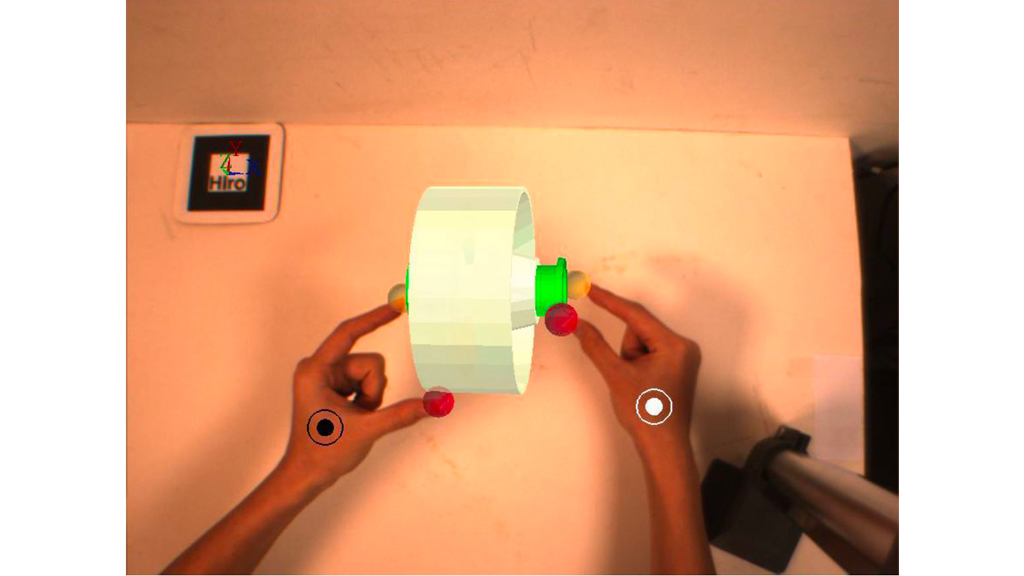
Bare-hand Manipulation: This method allows the users to interact with computer-generated virtual objects using their hands directly instead of using data gloves or pointing devices
A veteran who has witnessed the ebb and flow of new technologies, Professor Nee says the interest in AR/VR is reminiscent of the 3D printing boom a few years ago, and cautions against rushing into this sector without adequate knowledge.
Dreaming up an AR/VR ecosystem
More can be done to nurture the AR/VR scene in Singapore, say its practitioners. “Currently, most of the funding has been poured into robotics, 3D printing and more recently, artificial intelligence,” Professor Nee points out.
We need to consider setting up a national AR research centre to develop and showcase various AR applications and train programmers and content developers in AR.
Fortunately for Mr Chok’s iMMERSiVELY, support has arrived in the form of collaborations and startup space. Earlier this year, it partnered with SGInnovate to introduce VR experiences to delegates at the Singapore Week of Innovation and Technology (SWITCH) 2017. The company is now based at PIXEL Studios, under the aegis of the Info-communications Media Development Authority (IMDA).
Immerzen Labs, meanwhile, counts EF, SGInnovate and SparkLabs Global Ventures as pre-seed round investors. It recently moved to 71 Ayer Rajah Crescent, a sprawling estate of tech and media startups.
Singapore is a great place; it is very forward-looking. I think this is one of the first examples of a city-based cloud that is funded by the government,” Dr Dhakar says. “As data becomes cheaper, and with 3D sensors in all our phones, other cities will also eventually have this kind of platform.
SGInnovate regularly holds events touching on different topics and technologies including AR/VR. Please visit our events page or follow us on Facebook to find out more!
Trending Posts
- How an aerospace engineer charted a path to quantum technology
- Scaling nanomaterials is challenging — Meet the startup with a hybrid solution
- Surveying Singapore's early-stage emerging tech startup landscape
- Mentor's Perspective: How hiring a TCM Physician has benefitted this MedTech startup
- From meridian points to machine learning



